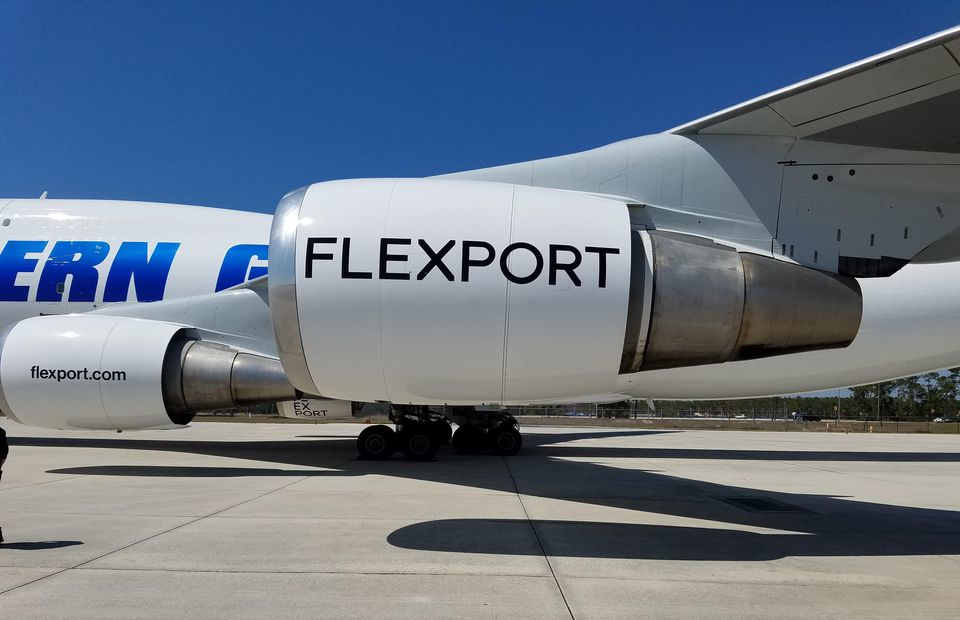 CLOUD
CLOUD
 CLOUD
CLOUD
 CLOUD
CLOUD
Yet more turmoil was announced by the beleaguered freight logistics software startup Flexport Inc. today, as it revealed plans to cut up to 30% of its workforce.
The layoffs are being made to shore up Flexport’s financial situation, which has been hit by a big decline in revenue, unnamed sources told The Wall Street Journal. According to a company spokesperson, the decision was taken by Flexport founder Ryan Petersen in order to return it to profitability.
San Francisco-based Flexport sells a cloud-based platform that enables companies such as online retailers to orchestrate their supply chains through a centralized interface. Using the startup’s software, businesses can order merchandise from its suppliers as well as manage how the cargo is shipped. Flexport provides features for managing shipments of ocean freight, air freight and truck cargo.
The spokesperson said Petersen has always been very transparent about the need for the company to drive growth and maintain cost discipline. “We will do so in a way that doesn’t impact customer service and our ability to help grow our customers’ businesses,” he added.
The Journal’s anonymous source said the layoffs will take place at the end of the month. The company has had a tumultuous year, undergoing a previous round of layoffs in January before the controversial departure of its former Chief Executive Dave Clark last month.
Clark, a former senior executive at Amazon.com Inc., joined Flexport in September 2022, originally serving as co-CEO alongside Petersen. A few months later, in March this year, Petersen stepped aside and became the company’s executive chairman, giving Clark sole control over the day-to-day running of the company. He immediately went on a hiring spree, adding numerous hand-picked executives and oversaw Flexport’s acquisition of Shopify Inc.’s logistics arm.
Then last month, Clark, who had helped build up Amazon’s enormous logistics network over a 23-year period, abruptly quit his role. It was initially reported that he and Petersen had disagreements over the direction of the company and its financial priorities.
Clark’s departure initially appeared to be amicable, but an expose earlier this week by CNBC revealed that Petersen criticized the CEO he appointed for hiring too aggressively. In response to CNBC’s article, Clark posted on X, formerly Twitter, that he had discovered extensive problems with Flexport’s revenue forecasting model, which was “consistently providing overly optimistic outputs.”
“The company had missed cost, margin, and revenue forecasts for multiple quarters prior to my arrival,” he said. “Flexport is facing serious internal and industry challenges that require serious leadership, and I sincerely hope they find a successful path.”
Since Petersen regained control of the company, 11 of its senior executives, many of whom were hired by Clark, have left or were dismissed. The departures include former Microsoft Corp. and Amazon executive Teresa Carlson, who became Flexport’s president and chief commercial officer in January. In addition, Peterson has also reportedly rescinded number of job offers to individuals who were about to start working there. He has also announced plans to rent out part of the company’s office space in order to get its costs under control.
Previously, Flexport cut about 20% of its global workforce in January, amounting to about 600 jobs. The company’s revenue has reportedly been drying up as a result of lower freight demand and reduced shipping volumes across the globe. To counter this trend, Flexport has attempted to reposition its offerings by adding more supply chain services into the mix.
Holger Mueller of Constellation Research Inc. said the drama at Flexport shows how managing growth can be a real challenge for software startups, which are constantly having to re-evaulate their talent and best practices to stay competitive. “Talent changes usually trigger a downward vector in terms of executive changes too,” Mueller explained. “This is what we are seeing at Flexport, where an outside CEO with great pedigree was hired to introduce changes, but has not succeeded. As such, we see the owner and founder making a comeback, but it remains to be seen if he can solve Flexport’s problems.”
Flexport has previously secured more than $2.3 billion in investment from big venture capital firms such as Andreessen Horowitz and SoftBank Group’s Vision Fund. Following its most recent, $935 million round in February 2022, it was valued at over $8 billion.
Support our mission to keep content open and free by engaging with theCUBE community. Join theCUBE’s Alumni Trust Network, where technology leaders connect, share intelligence and create opportunities.
Founded by tech visionaries John Furrier and Dave Vellante, SiliconANGLE Media has built a dynamic ecosystem of industry-leading digital media brands that reach 15+ million elite tech professionals. Our new proprietary theCUBE AI Video Cloud is breaking ground in audience interaction, leveraging theCUBEai.com neural network to help technology companies make data-driven decisions and stay at the forefront of industry conversations.